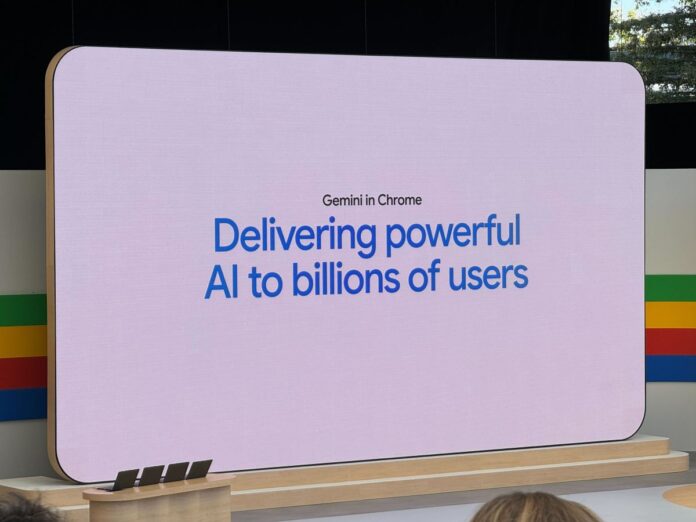At the Google I/O 2024 developer conference on Tuesday, Google announced that it is building Gemini Nano, the smallest of its AI models, directly into the Chrome desktop client, starting with Chrome 126.
This, the company says, will enable developers to use the on-device model to power their own AI features. Google itself plans to use this new capability to power features like the existing “help me write” tool from Workspace Lab in Gmail, for example.
The company says it’s the recent work on WebGPU and WASM support in Chrome that enables these models to run at a reasonable speed on a wide set of hardware.
In a briefing ahead of Tuesday’s announcement, Jon Dahlke, Google’s director of product management for Chrome, noted that Google was in talks with other browser vendors to enable this — or a similar feature — in their browsers, too.
“We have started to engage with other browsers and will be opening up an early preview program for developers,” Dahlke wrote in Tuesday’s announcement. “With webGPU, WASM, and Gemini built into Chrome, we believe the web IS AI-ready. “
I doubt that most Chrome competitors would want to solely bet on Google’s AI models, though. What makes more sense is to enable browsers — and developers — to run the model of their choice. Google would clearly opt to run Gemini for its applications, but these models are small enough to allow developers to choose whichever one they want for their applications.
Google’s bet, however, is to enable a number of high-level APIs in Chrome to translate, caption and transcribe text in the browser using its Gemini models.
“To deliver this feature, we fine-tuned our most efficient version of Gemini and optimized Chrome,” Dahlke said during today’s developer keynote at I/O. “Now we want to give you access to Gemini models in Chrome. Our vision to give you the most power AI models in Chrome to reach billions of users without having to worry about prompt engineering, fine-tuning, capacity and cost. All you have to do is call a few high-level APIs – translate, caption, transcribe. This is a big shift for the web and we want to get it right.”
For developers, Google is now also using the built-in Gemini Nano model to power some new features in the Chrome DevTools Console. Thanks to this, the Chrome dev tools can now explain errors and provide debugging solutions right in the console.
We’re launching an AI newsletter! Sign up here to start receiving it in your inboxes on June 5.
Source link






